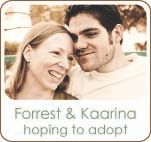Invited by Sunstone to muse on a theme, I'm taking a crack at it. Any thoughts on the writing or strengths or weaknesses of the following are welcome:
In my college years, I came home for Thanksgiving one fall along with all my siblings. As my older brother asked for the stuffing, he was reminded that there were onions in it, and so he wouldn’t like it (he was famously opposed to onions in his food as a child). He persisted in asking, eventually blurting in a frustrated tone, “I like onions now, okay? That was, like, ten years ago! People change! I... LIKE... ONIONS... NOW!” It was clear that he'd tried to communicate this before, but old habits die hard, and the reputation seemed to follow him anyway. His outburst was funny and awkward and surprising, but we finally passed him the plate.
It reminded me how hard it is to change when those around you expect you to stay the same. That same weekend I noticed the difficulty of acting like an adult around my family. To this day, when we get together, all the siblings seem to revert to certain childhood roles and habits. In many ways it’s tons of fun, but I’m also often turned off by my own tendency to be funny, flippant, and bossy around my family. I act the same way I did when I was 17, despite the fact that I don’t act that way as an independent adult. When I'm with the whole family I cannot seem to stop myself, even though I recognize it happening.
This, to me, gets at the heart of the purpose of forgiveness. The Sunday-School-vogue it seems is to talk about the real purpose of forgiveness being for you, the forgiver: to free you of the burden of a grudge or ill-will. But I think this happy byproduct is really secondary to the real point. As with most of Jesus Christ’s teachings, our first and foremost concern is that of others, not the self. The most important reason for forgiveness is not so that we can continue our happy-go-lucky lives unfettered by the burdens of the local sinner, but so that he can. My own experience in something as simple as a family gathering is evidence that it’s extremely difficult to behave differently than expected by those around you. Despite moments of enlightenment, it’s very hard not to believe the subtle and unspoken suggestions by others about who you are, what you are worth, and what you will become. It’s one of the reasons “bad” kids sometimes stay bad, criminals often stay criminals, abused children frequently grow up to choose abuse.
Jesus Christ knows that if he wants his lost sheep back, he needs all of us. He needs us to expect the best of each other, to honor the divinity in each other, to treat each other as though we’ve already moved on from our hang-ups. He needs us to keep passing that plate of onioney goodness, even if we think it will be refused. Because people change. And it’s our job to not only let them, but to pave their way by treating them as though they already have. He needs us to forgive.
Saturday, January 12, 2008
Subscribe to:
Comments (Atom)

